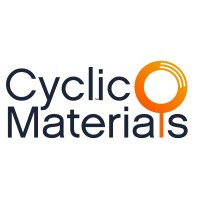The startup game loves a shiny pitch. Clean energy. Circular economy. Sustainability. We’ve heard the track on repeat, but Cyclic Materials just added the drop. This crew isn't throwing catch phrases around a whiteboard, they're dismantling EV motors, MRIs, and wind turbines to extract the literal core of modern tech. Magnets. Rare earths. Critical materials. The stuff wars are waged over and economies bet on. And they’re doing it not in some lab fantasy, but in real steel-and-concrete facilities, twice commissioned, twice proven, and humming in Kingston, Ontario.
Started in 2021 by three engineers who clearly had no chill when it came to scaling moonshot ideas, Ahmad Ghahreman (CEO), Patrick Nee (SVP Strategic Partnerships), and Alex Forstner (CTO), this team has turned a clean tech vision into a global operation. Ghahreman’s got 15+ patents, a PhD, and a résumé that reads like the credits of a James Cameron flick. Nee built Universal Bio Mining, earned a nod from the World Economic Forum, and squeezed in degrees from MIT, Tokyo Tech, and Columbia. Forstner? Engineeringphysics to MBA to full-on magnet whisperer.
So how do you scale a sci-fi tech that recycles the un-recyclable? Easy. You raise $55M in Series B, backed by some of the world’s savviest climate capital. ArcTern Ventures led the round, and the bench runs deep, BDC Capital’s Climate Tech Fund, Hitachi Ventures, Microsoft’s Climate Innovation Fund, InMotion Ventures (yeah, that’s Jaguar Land Rover), and the Amazon Climate Pledge Fund. It’s like the Avengers of ESG capital rolled through with suitcases full of conviction.
They didn’t stop with theory. They launched MagCycle™, mechanical extraction of magnets, and REEPure™, a hydrometallurgical process that turns that recovered material into high-grade mixed rare earth oxides. First in the world to do it. And they’re not just keeping receipts, they’re writing offtake agreements with giants like Solvay, supplying recycled copper to Glencore, and building a pipeline across North America, Europe, and Asia.
The impact hits harder than a Tesla coil. Compared to mining? 85% less CO2. 98% less water. No radioactive residue. Just a fully circular supply chain built on smarts, grit, and a refusal to settle for “good enough.”
In an industry where less than 1% of REEs get recycled, Cyclic Materials is scaling to process 600 tons of material by 2026, and 5x that by 2030. That’s not a business model. That’s a mission with torque.
Don’t blink. The future’s getting pulled from the scrap heap, and spun into something magnetic.
Startups StartupFunding VentureCapital SeriesB ClimateTech DeepTech Sustainability CircularEconomy Cleantech Technology Innovation TechEcosystem StartupEcosystem
Discussion about this post
No posts



